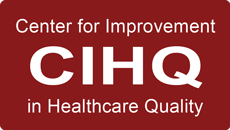
Have you ever been so prepared for a survey that you were 100% sure you would come out with no findings at all? You have gone through 59,827 supplies to assure there are no outdated items, you have coached, prepared, and preached continuous readiness, your meeting minutes are documented…only to have a surveyor come in and find those frustrating things that you were positive didn’t exist. Yep, it is not a coincidence. Surveyors have a way of finding things and exposing them. Let’s look at a few requirements that could be troublesome during an accreditation survey.
Approvals & Appointments
CMS has numerous requirements around official appointments and governing board approvals. Here are a few:
CMS has numerous requirements around official appointments and governing board approvals. Here are a few:
- Whether you have a single site or multiple sites, there must be one medical director (MD or DO) appointed over each of the following (if these services are offered): emergency services, respiratory services, anesthesia services, radiology, and nuclear medicine services. Don’t have a radiology department but you do portable films and ultrasounds at your facility? You still need a medical director of radiology to provide oversight. And having no employed respiratory therapists does not mean you don’t have respiratory therapy services; if nurses give aerosols and/or manage CPAP or ventilators, you need a director to provide oversight. 482.26(c); 482.52; 482.53(a); 482.55(a); 482.57(a)
- Official appointment of the person in charge of the infection prevention program and the antibiotic stewardship program. 482.42(a); 482.42(d)
- The grievance process must be “approved by” the governing body and if delegated, must be delegated to a committee. A committee is not a single person. 482.13(a)(2)
- The number of distinct improvement projects is approved annually by the governing body and the governing body receives an annual summary report on QA/PI indicators monitored, including contracted services. 482.21(e)
- Approval of the privileges of all providers, including telemedicine, mid-level providers, and a policy for providers not appointed to the medical staff but order outpatient services. 482.54(c)
QA/PI
The scope of quality must include all services, including those provided by contract. Don’t forget services such as dietary kitchen (even if your food is delivered from an off-site kitchen), environmental services, discharge planning, and biomed. Assure that all contracted services are also integrated into your QAPI program.
The scope of quality must include all services, including those provided by contract. Don’t forget services such as dietary kitchen (even if your food is delivered from an off-site kitchen), environmental services, discharge planning, and biomed. Assure that all contracted services are also integrated into your QAPI program.
The Microscope Search
There are a few items, when observed, that will always trigger a few more questions. One is a microscope located in a unit or clinic. The first question will be who uses it. Surveyors will want to know if your CLIA license includes Provider-performed microscopy, if providers have been deemed competent by the director of the lab, and if they have the appropriate privileging to perform such tests? Does anyone else use the microscope? Other equipment that may trigger additional questions is the use of lasers and robots, and food found/prepared in nuclear medicine.
There are a few items, when observed, that will always trigger a few more questions. One is a microscope located in a unit or clinic. The first question will be who uses it. Surveyors will want to know if your CLIA license includes Provider-performed microscopy, if providers have been deemed competent by the director of the lab, and if they have the appropriate privileging to perform such tests? Does anyone else use the microscope? Other equipment that may trigger additional questions is the use of lasers and robots, and food found/prepared in nuclear medicine.
Staff Training
Did you mention that you have a new piece of equipment on your unit? The follow-up question is likely to be how were you…and the rest of the staff, trained to use the new equipment…which is then followed by asking for the personnel file to see if the training is documented. Make sure there is documentation of all training. A few other annual requirements around staff training include (but are not limited to):
Did you mention that you have a new piece of equipment on your unit? The follow-up question is likely to be how were you…and the rest of the staff, trained to use the new equipment…which is then followed by asking for the personnel file to see if the training is documented. Make sure there is documentation of all training. A few other annual requirements around staff training include (but are not limited to):
- Infection prevention and fire response
- High level disinfection and sterilization for staff who perform these activities
- Restraint use
- Abduction prevention program for newborns and pediatric patients
- Workplace violence and managing potentially violent situations
- How to manage disruption or loss of essential utilities
- Recognition of abuse, neglect and harassment
- Performance of waived (point-of-care or bedside) testing
- Organ donation 482.45(a)(5)
Life Safety
- If there is evidence of contractor vehicles and/or signs, new flooring, or ceiling compromise, expect some questions regarding performance of an infection control risk assessment, interim life safety assessments, and requests for daily inspection sheets.
- If the surveyor is aware of recent local emergency activities such as floods, fire, and utility outages, expect questions around emergency preparedness, disaster management, and action reports regarding follow-up on deficiencies that were identified. Ensure your risk assessment for both infection prevention and emergency preparedness addressed these areas of concern.
- Doors without signage – surveyors love these. When doing rounds, always look in these areas. Many interesting items are found within.
- Unused, repurposed rooms: Are you aware that an unused patient room which has become a storage area for papers may not meet fire safety standards?
REFERENCES
Center for Improvement in Healthcare Quality. (2022). Accreditation Standards for Hospitals.
Center for Medicare and Medicaid Services. (2020). State Operations Manual, Appendix A – Survey Protocol, Regulations and Interpretive Guidelines for Hospitals.
Center for Improvement in Healthcare Quality. (2022). Accreditation Standards for Hospitals.
Center for Medicare and Medicaid Services. (2020). State Operations Manual, Appendix A – Survey Protocol, Regulations and Interpretive Guidelines for Hospitals.
